Slate is a non-porous material that does not absorb water, meaning that it is almost completely waterproof. This makes it a popular choice for roofing tiles, wet-room cladding, and countertops in kitchens.
Slate is a highly sought after material due to its aesthetic appeal, durability, and low maintenance requirements. It is perfect for retaining moisture and keeping soil cool, which makes it ideal for use as a mulch in landscaping. However, despite its durability, it is not without its disadvantages.
Slate can be affected by seams and is not suitable for curved facades. Nonetheless, one of slate’s most impressive features is its low absorption capacity, making it an excellent choice for areas subject to high levels of water and moisture penetration. Whether you’re building a house or landscaping your garden, slate remains a top choice for many people.
The Porous Nature Of Slate
Slate, like all natural stones, is porous and can easily allow water to seep below the surface. However, slate has a lower water absorption index, making it almost completely waterproof, which makes it a preferred material for roof tiles, cladding, tiles in wet-rooms, countertops in kitchens, and even shower areas.
Slate is a popular choice for many homeowners due to its durability, unique texture, and low absorption rate. But what does the porous nature of slate mean when it comes to water seepage? Let’s explore.
Slate And Water Seepage
Being a natural stone, slate has tiny pores and crevices that can allow water to seep beneath its surface. However, compared to other stones, slate has a very low water absorption rate, making it highly resistant to water damage.
Slate’s Absorption Capacity
Slate’s low absorption capacity is due to its mineral composition and non-porous nature. This characteristic makes slate an ideal material for countertops, roof tiles, and other applications where water damage is a concern. If you spill liquids on your slate countertops or floors, be sure to wipe them up quickly to prevent any staining or damage.
Slate Coasters Vs. Other Materials
When it comes to coasters, slate is a top contender due to its low absorption rate and natural resistance to water and stains. Unlike absorbent materials such as cork or fabric, slate coasters won’t leave moisture rings on your table or absorb excess liquid, making them a practical and attractive choice for entertaining.
In conclusion, while slate is not entirely impervious to water, its low absorption rate makes it a reliable and durable choice for areas where moisture is a concern. By understanding the porous nature of slate, you can make informed decisions about how to care for your slate surfaces and choose the right slate products for your home.
Characteristics Of Slate
Slate is a porous material, meaning it can allow water and other liquids to seep beneath the surface. However, slate has a very low water absorption capacity which makes it almost completely waterproof, making it a preferred material for roof tiles, cladding, tiles in wet-rooms and countertops in kitchens.
Slate is a natural stone that’s formed from shale under extreme pressure and heat. It consists mainly of clay minerals and micas. Its unique texture and stunning appearance make it a popular material used in construction, roofing, and home decor.
Durability Of Slate
Slate is a durable material that can last for decades. It’s hard-wearing and can withstand adverse weather conditions, making it suitable for use on roofs and floors. Slate is also resistant to fire and chemicals, making it an excellent choice for kitchen countertops.
Moisture Retention
One of the remarkable features of slate is its ability to retain moisture. It’s an ideal material for mulch and can help cool soil, making it easier for plants to survive during hot weather conditions. Slate is non-porous, which means it won’t attract mould, and chemicals such as soap and shampoo will wash off very easily.
Disadvantages Of Slate
While slate has many advantages, some disadvantages come with it. One of the main disadvantages is that it’s not suitable for curved facades. Slate isn’t good at treating seams, and too many seams will negatively affect both appearance and functionality. Another disadvantage is that it’s a porous material, which means it can allow water and other liquids to seep beneath the surface.
In conclusion, slate is a unique material with many advantages for construction and home decor purposes. Understanding the characteristics of slate is essential in determining its suitability for various projects. With proper care and maintenance, slate can maintain its beauty and durability for a long time.
Properties Of Slate Stone Tile
Slate stone tile is known for its impressive low absorption capacity, making it almost completely waterproof. Despite being a porous material, water and other liquids don’t easily seep beneath the surface of slate, making it an ideal choice for use in wet-rooms, roofs and cladding.
Moisture Absorption In Wet Surroundings
Slate stone tiles are a popular choice for flooring, wall cladding, roofing, and many other indoor and outdoor applications. The natural stone has a unique texture, resilience, and durability. One of the most significant properties of slate stone tile is its low water absorption rate. Slate has a very low water absorption index, making it nearly waterproof. Therefore, slate stone tiles are ideal for wet environments such as bathrooms, kitchens, and swimming pools. Unlike other natural stone tiles, slate does not develop cracks or molds due to exposure to water.
Release Of Dust In Dry Settings
On the other hand, the low moisture absorption rate has some potential drawbacks. In dry surroundings, slate stone tiles can release dust particles. This is typical for tiles that have not been sealed and polished. As a result, slate stone tiles may require periodic cleaning and maintenance to keep them dust-free. However, with proper sealing and polishing, slate stone tiles can resist dust buildup and maintain their distinctive appearance for a long time.
In conclusion, the properties of slate stone tile make it a versatile and durable material for various applications. It has a low moisture absorption rate, making it suitable for wet environments, and can resist dust buildup with proper maintenance. Slate stone tiles come in various sizes, colors, and patterns, allowing for creative and unique designs. Whether for residential or commercial settings, slate stone tiles are an excellent choice for a stylish and practical finish.
Use Of Slate In Home Construction
Slate is a porous material and can allow water and other liquids to seep beneath the surface. However, it has a very low water absorption index making it almost completely waterproof, which is why it is a preferred material for roof tiles, cladding, tiles in wet-rooms and countertops in kitchens.
The use of slate in home construction has been gaining popularity over the years. This beautiful, natural material has become an excellent choice for various applications, from flooring and roofing to countertops and wet rooms. One of the reasons for this is its low water absorption index, which makes it almost completely waterproof. In this section, we will explore the two primary ways slate is used in home construction: slate roofing and slate tiles for wet rooms.
Slate Roofing
Slate has been used as a roofing material for hundreds of years. This is because it is incredibly durable and long-lasting; slate roofs can last for over a century with proper maintenance. In addition, slate is fire-resistant and an excellent insulator, making it perfect for roofing homes in areas with extreme temperature fluctuations.
Another advantage of using slate for roofing is its aesthetic appeal. Slate comes in a range of colors and textures, from dark grey to blue-tinged green. When installed correctly, a slate roof can enhance the overall look of a home while adding value to the property.
Slate Tiles For Wet Rooms
Slate tiles are an ideal choice for wet rooms and other areas with high levels of moisture penetration. This is because slate is non-porous, meaning it will not leak or absorb water. It is also naturally slip-resistant, making it an ideal choice for bathroom and shower floors.
In addition to its practical advantages, slate also has an attractive, rustic look that is perfect for modern and traditional bathroom designs alike. Slate tiles come in a range of sizes, textures, and colors so that you can create a unique, personalized look for your wet room.
In conclusion, slate is a versatile and practical material that can be used in various ways in home construction. Its low water absorption index makes it an excellent choice for roofing, wet rooms, and other areas with high levels of moisture penetration. With its durability and aesthetic appeal, slate is a long-lasting investment that will add value and beauty to your home for years to come.
Frequently Asked Questions On Does Slate Absorb Water
Can Water Penetrate Slate?
Yes, water can penetrate slate as it is a porous material. Similar to other natural stones, slate can allow liquids to seep through its surface.
Does Slate Retain Moisture?
Yes, slate is a porous material and can allow water and other liquids to seep beneath the surface. However, it can also retain moisture when used as mulch, making it ideal for plant survival in hot weather. It is durable and hardly affected by adverse weather.
What Are The Disadvantages Of Slate Rock?
Slate is a porous material and can allow water and other liquids to seep beneath the surface. However, slate is great for retaining moisture and is hard-wearing and rarely affected by adverse weather. One disadvantage of slate is that it’s not suitable for curved facades with many seams, as it can greatly affect the appearance.
Slate is non-porous and almost completely waterproof. It’s a preferred material for roof tiles, cladding, tiles in wet-rooms and countertops. Slate coasters don’t absorb liquids as well as silicone or ceramic.
Is Slate Porous Or Non Porous?
Slate is a porous material, allowing liquids like water to seep beneath the surface. However, when it comes to absorbency, slate is non-porous, making it almost completely waterproof. It is ideal for areas subject to high levels of water and moisture penetration and does not attract mold.
Is Slate Waterproof?
Slate has a very low water absorption index making it almost completely waterproof. It is a preferred material for roof tiles, cladding, and tiles in wet-rooms.
Conclusion
Slate is a beautiful and durable natural stone often used for roofing, countertops, and flooring. While slate is non-porous and has a low water absorption index, it is still a porous material that can allow liquids to seep beneath the surface.
Therefore, it is important to properly care for your slate to avoid any issues. Overall, slate is an excellent choice for those looking for a natural and long-lasting material for their home.
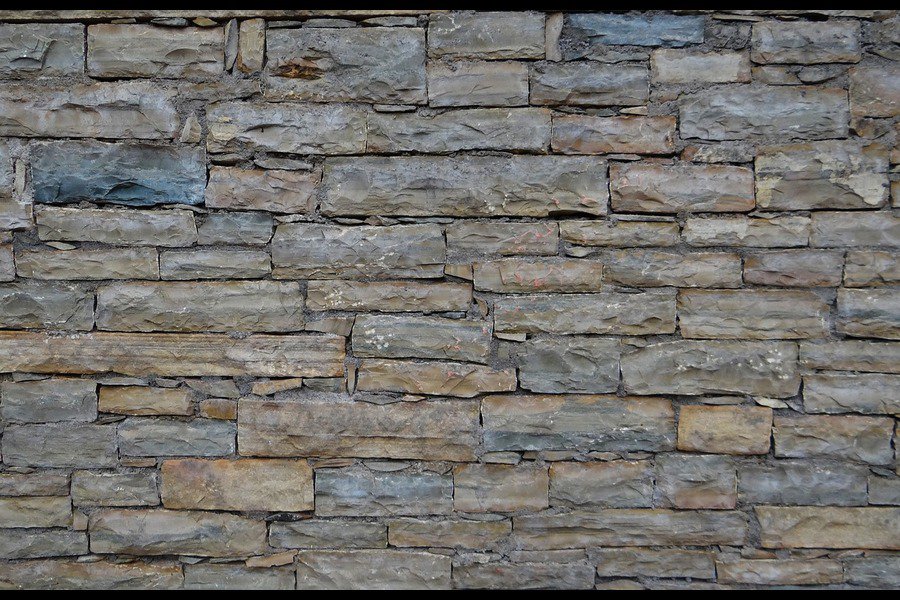
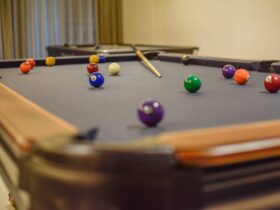

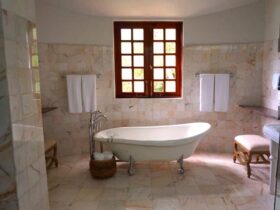

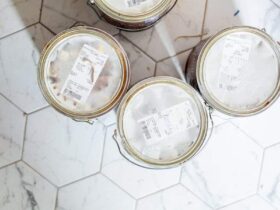
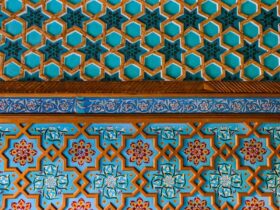
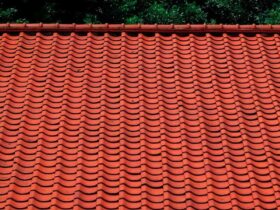

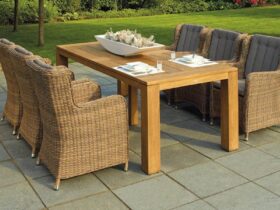
Leave a Reply